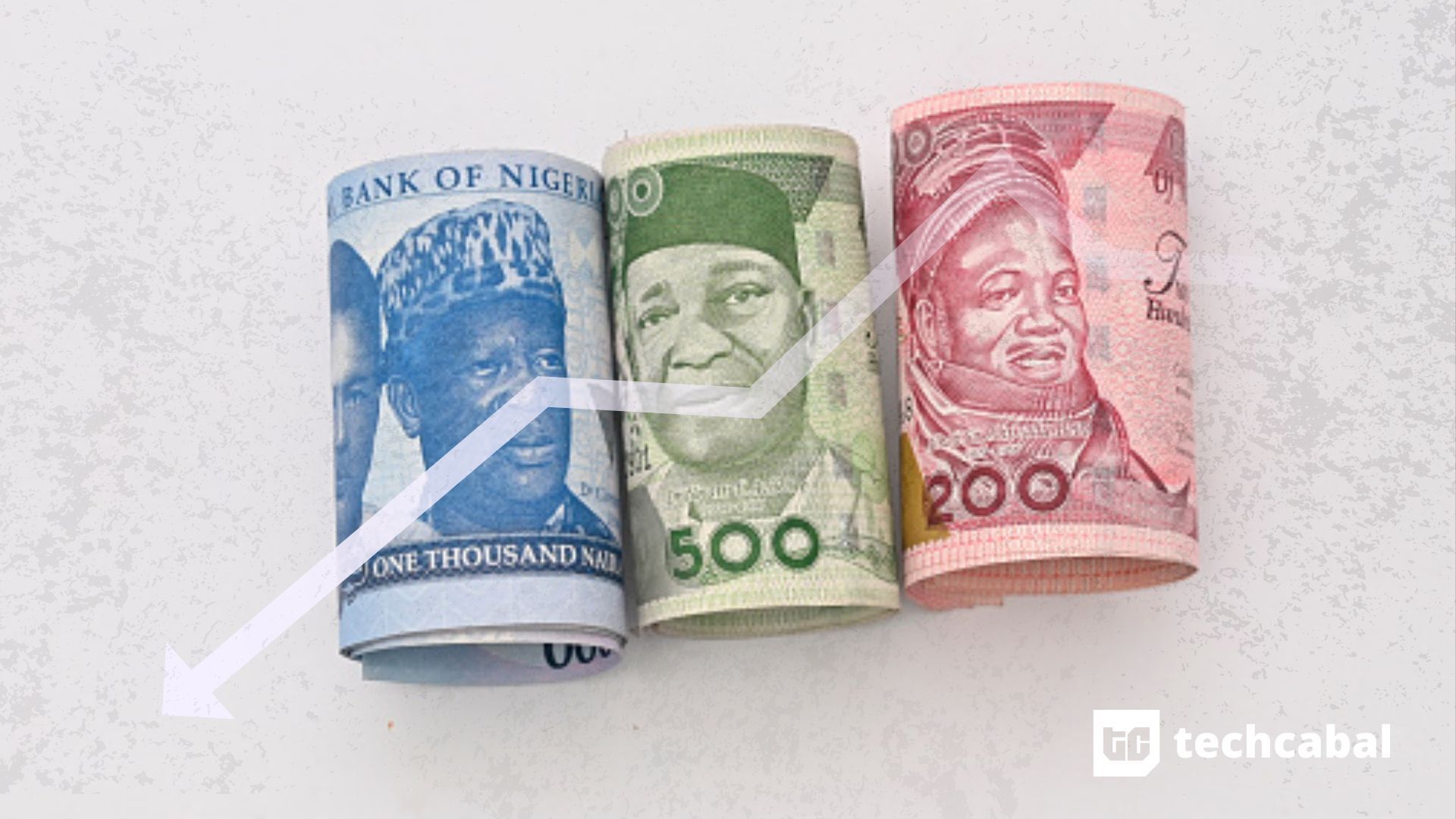A recent report by Absa Group Ltd. predicts a 15% devaluation of the Naira when the Tinubu-led administration assumes office. What are the implications for Nigerian citizens?
In a few days, Nigeria’s president-elect, Bola Tinubu, will be sworn in. The president-elect assumes office with promises aplenty and very high expectations from Nigerians. In his 80-page campaign manifesto, amidst economic plans to address fiscal, monetary, and trade reforms, Tinubu promises to “carefully review and better optimise” the naira system.
However, a recent report from Absa Group Ltd., a Johannesburg-based financial services firm, stated that following Tinubu’s inauguration, the Nigerian currency will be devalued by 15% to alleviate severe trade imbalances and dollar shortages. Investopedia defines devaluation “as the deliberate downward adjustment of the value of a country’s money relative to another currency, group of currencies, or currency standard.”
In 2021, Nigeria embraced a multiple exchange rate regime by keeping a stronger pegged rate for official transactions and weaker rate for unofficial transactions. This method was employed to avoid an outright devaluation of the naira. According to the Central Bank of Nigeria (CBN), it operated a “managed float” policy at the time, which allowed it to intervene in the exchange market when necessary. However, the controlled nature of the exchange regime has now driven demand to the unofficial black market, leading to a wide discrepancy between the official and parallel markets, according to the Absa report. For context, CBN’s official exchange rate is around ₦460 per dollar, while the currency traded at around ₦752 per dollar in the black market in March.
If the Absa report is to be believed, what then are the implications of a 15% currency devaluation on the ordinary Nigerian?
More hardship
“For the ordinary Nigerian, a devaluation by at least 15% means more inflation, which means a further increase in the cost of living and a further erosion of their respective purchasing power. Life in Nigeria will get harder. It is unfortunate, but that is the likely reality,” Basil Abia, a research consultant, told TechCabal.
Inflation erodes purchasing power and plunges more people into poverty. Nigeria’s inflation rate has been hovering around the 20th percentile since the beginning of the year, rising to 22.04% in March—the third consecutive increase in 2023. Global economy and finance expert, Kalu Aja echoes Abia’s concern. “For the average Nigerian that spends the bulk of their income on food, a devaluation will see the cost of food rise simply because the means of production, PMS, and fertilizers are still imported,” he said.
A double-edged sword
Abia noted that the devaluation will result in increased inflation and an erosion of the Nigerian consumer’s already dwindling purchasing power. This will, in turn, affect the profitability margins of export-based micro, small and medium enterprises (MSMES) due to increased costs of imports, and increase the cost of living in the country.
However, he adds that there could be some benefits from the devaluation. “If it is perceived to be temporary, it may present attractive opportunities for foreign investors to invest in our domestic financial markets. It is not certain, but it is a possibility that FPI (foreign portfolio investments) inflow to Nigeria may temporarily increase,” Abia said.
Aja shares a similar view: “For citizens that spend Naira, it [devaluation] means imported inflation is more severe and reduces purchasing power. Keep in mind, devaluation is not entirely bad. It can be a strategy to reduce a budget deficit or boost export, but you can devalue your way to wealth.”
For Adedeji Olowe, founder of Lendsqr, a lending SaaS fintech, the impact of the devaluation on the Nigerian economy may be minimal. “The devaluation would be on the official exchange rate which nobody has access to in the first place. Furthermore, it makes the USD that the government earns go a very long way and helps the funds that are stuck to move out [say Emirates Airlines] but with substantial losses,” Olowe said.
The devaluation also indicates that the Tinubu-led administration will likely retain the existing float policy and maintain an artificial exchange rate amid Nigeria’s foreign exchange (FX) shortage. The implication, according to Abia, is that the current economic uncertainties caused by a multiplicity of FX windows will be further accentuated. “There’s also a chance that the alternative FX window might be the closest accurate valuation of the Naira, forcing an increased transactional demand by investors, importers and individuals to use the FX window for all their FX transactions and needs,” he said.
Aja adds that the issue with the exchange rate is the wide arbitrage, which the devaluation will address. He told TechCabal, “the devaluation seeks to close that artificial gap and bring more certainty to economic planning. You can’t plan if you have to buy $1 at 740 or 488; devaluation closes the gap a bit, less swings, makes the exchange less volatile, and even encourages remittances.”
The implications of an impending currency devaluation on Nigerians are far-reaching and multifaceted. While it is poised to address imbalances in the foreign exchange market, the darker side is the burden that falls heavily on the most vulnerable segments of society, exacerbating poverty and inequality. As the country faces economic turmoil, it is crucial for the incoming government to implement comprehensive and sustainable measures to stabilize the currency, promote economic diversification, and improve the overall well-being of Nigerians.




















